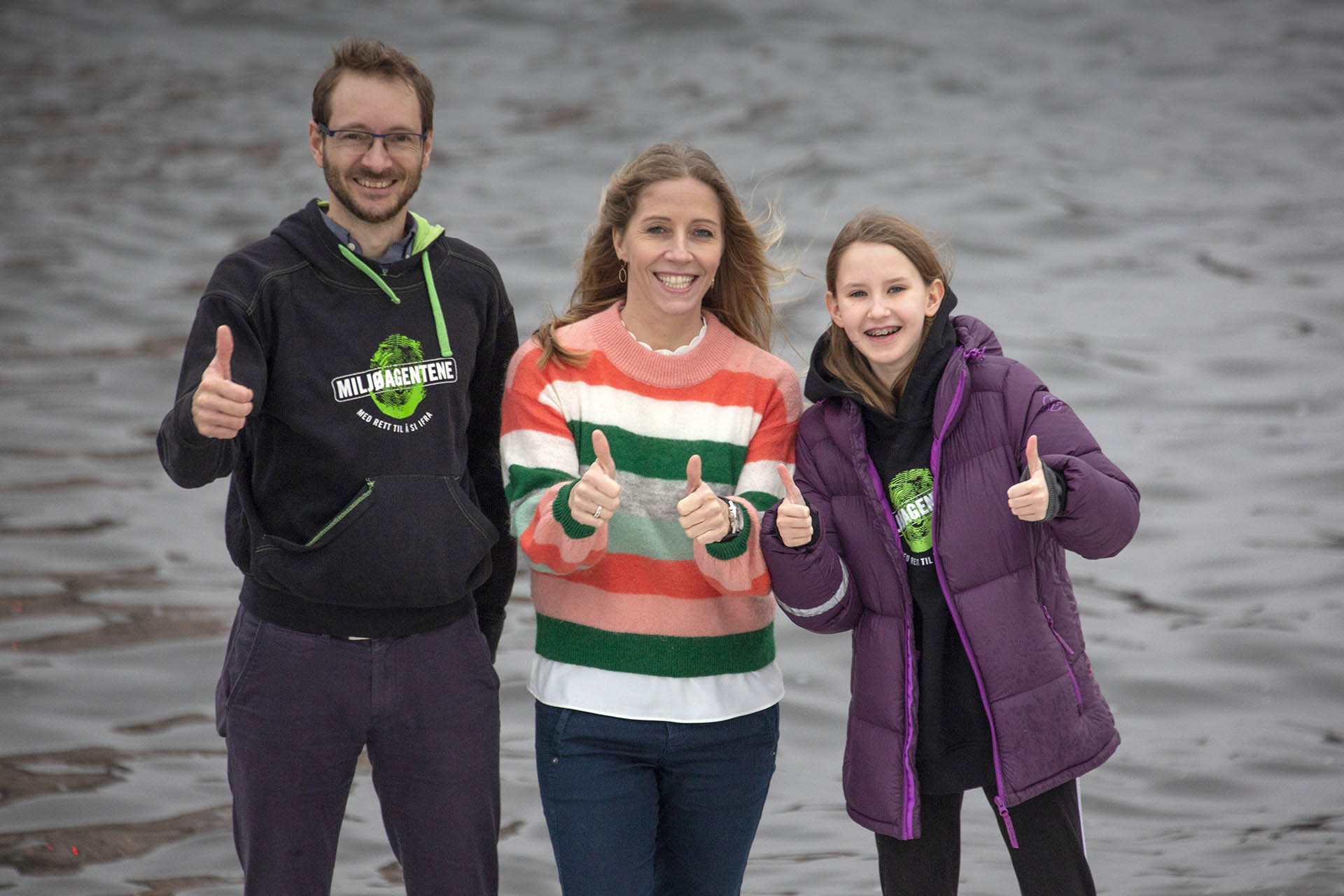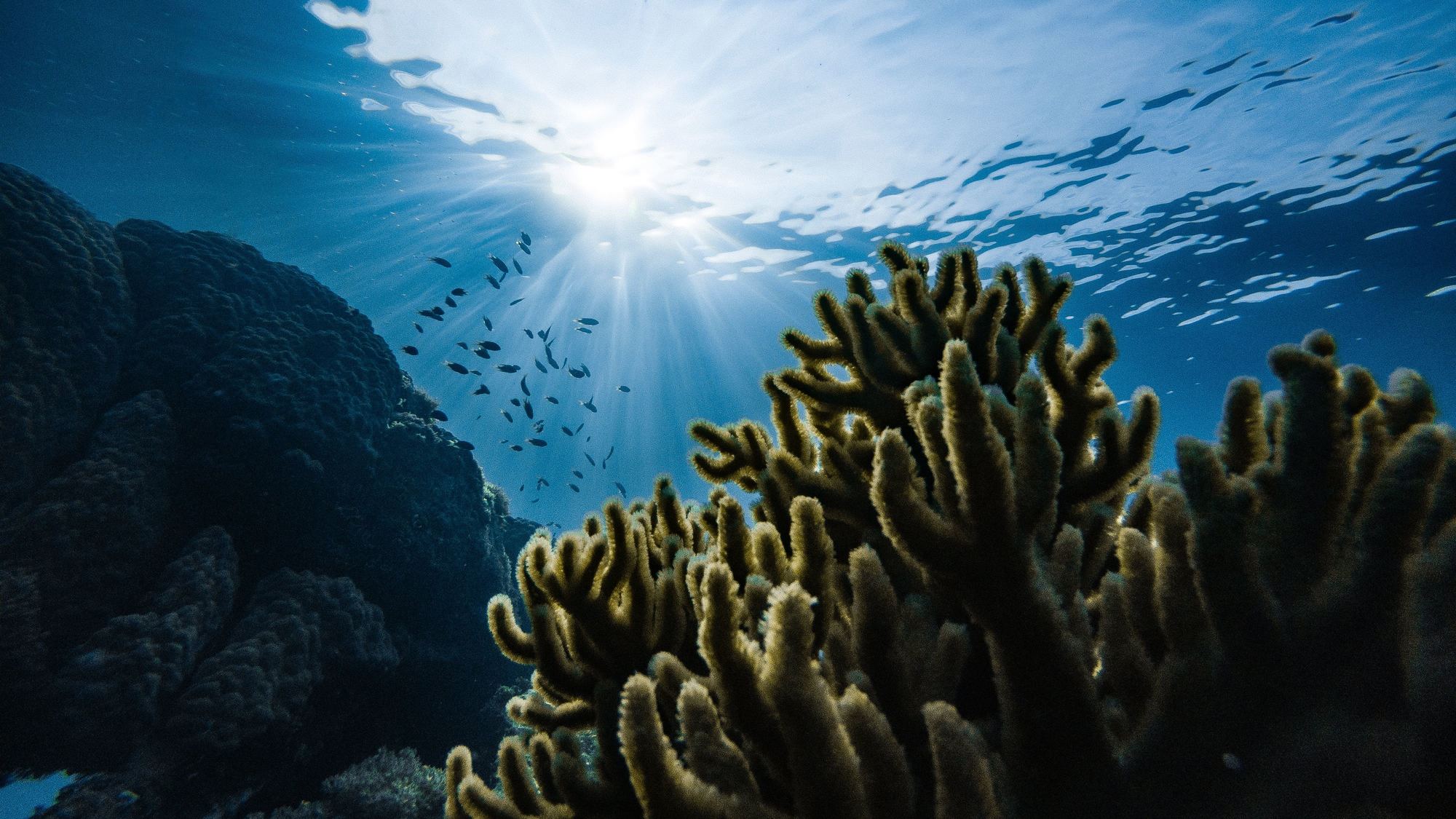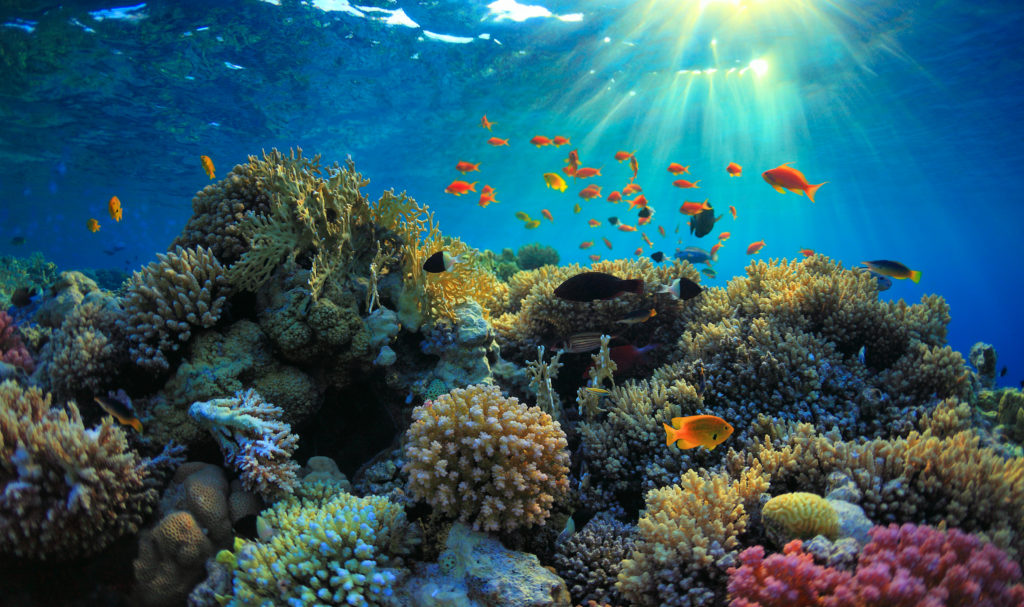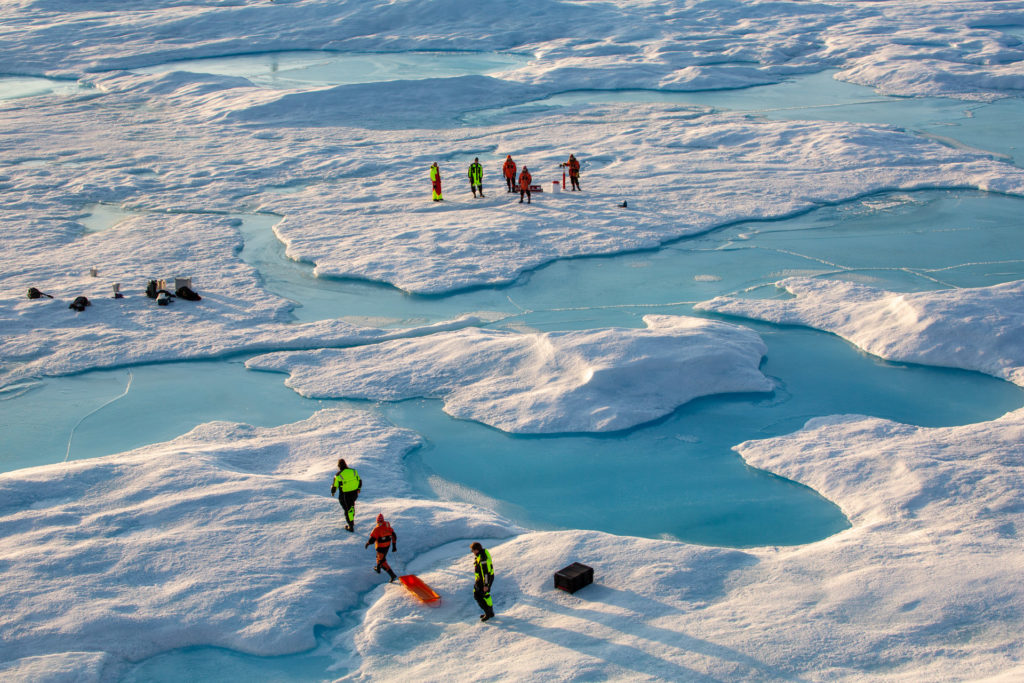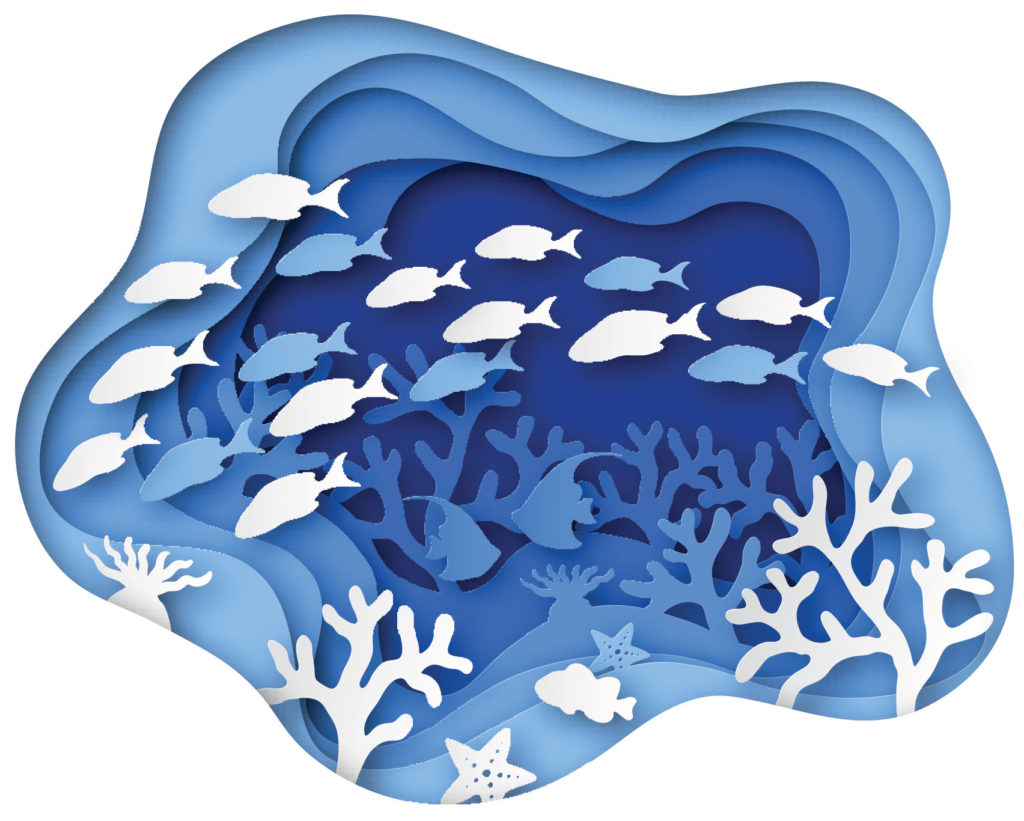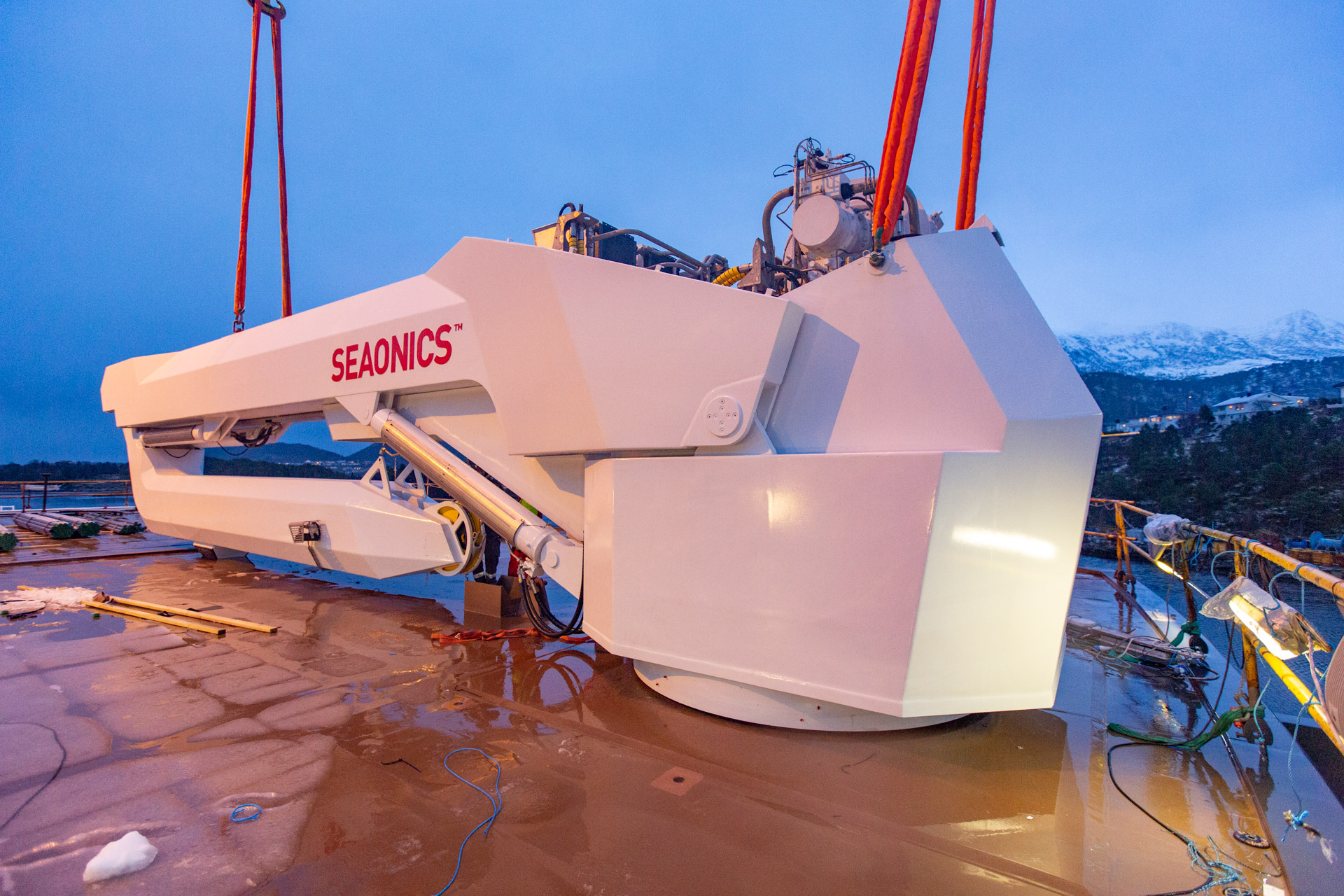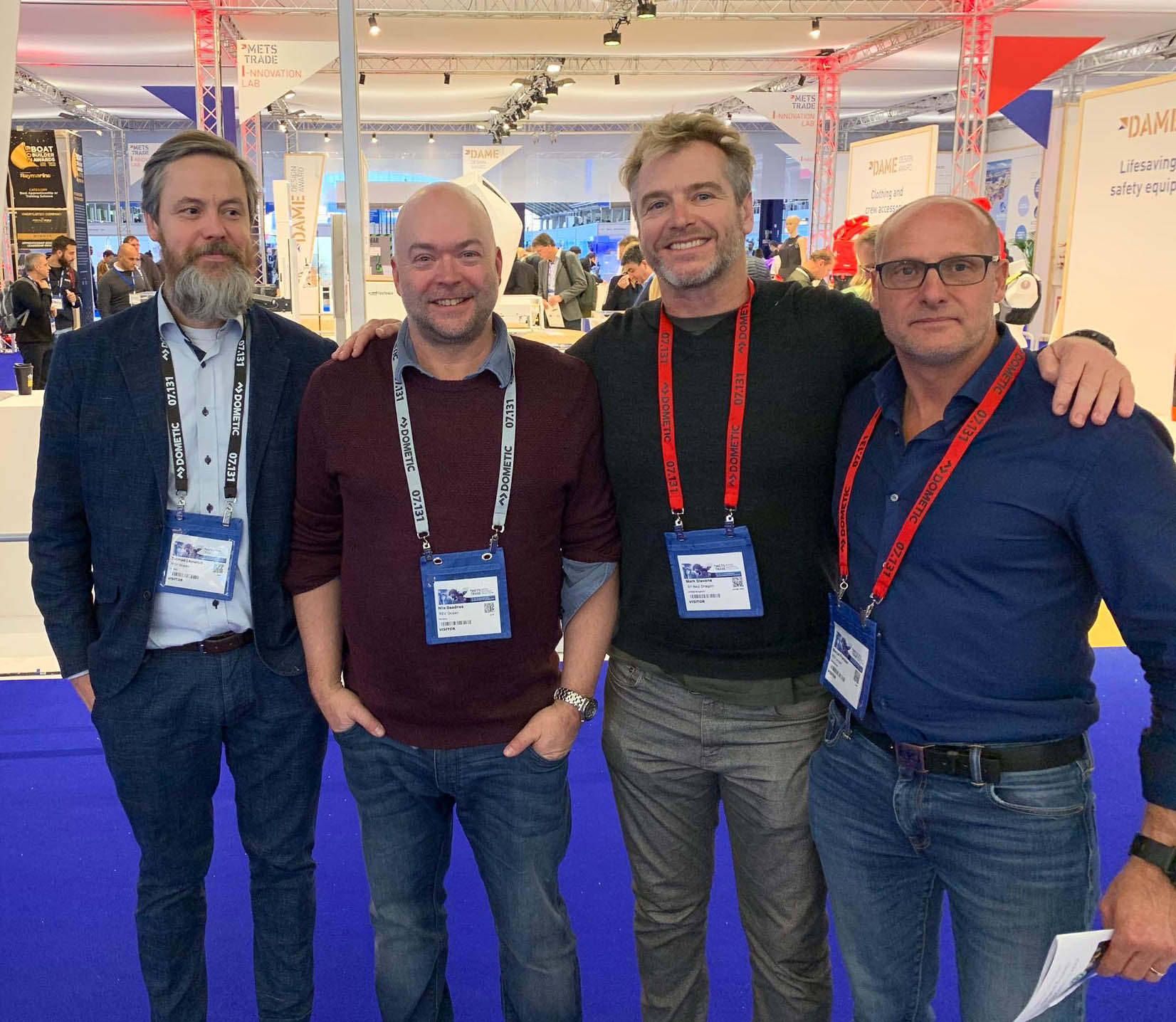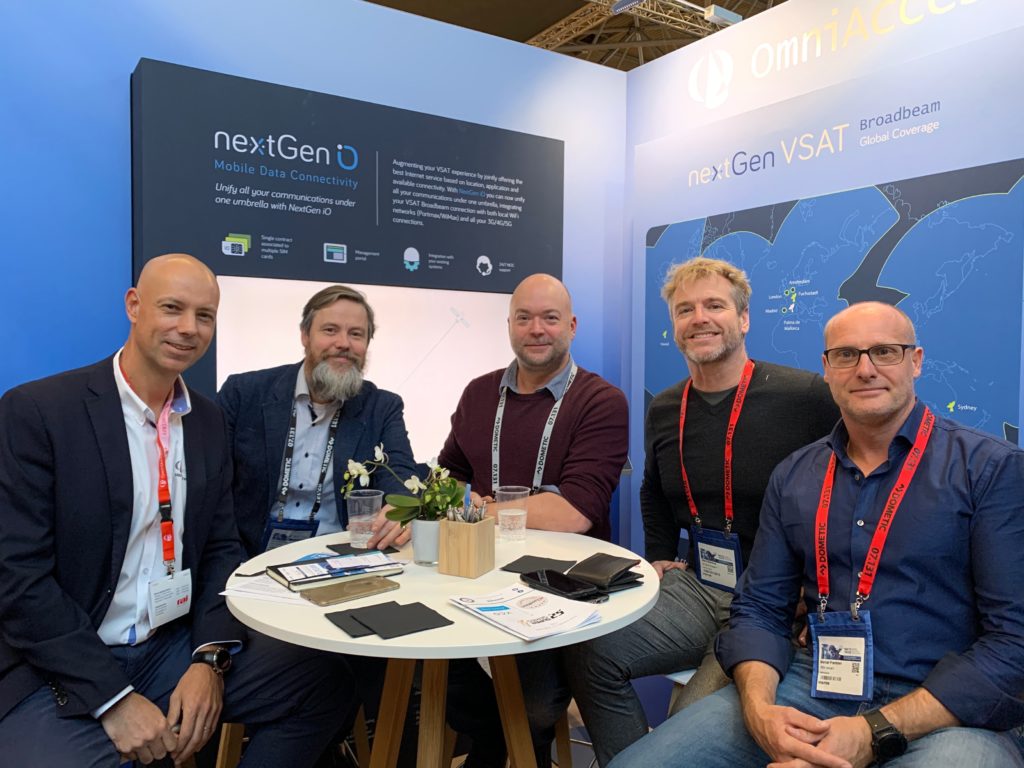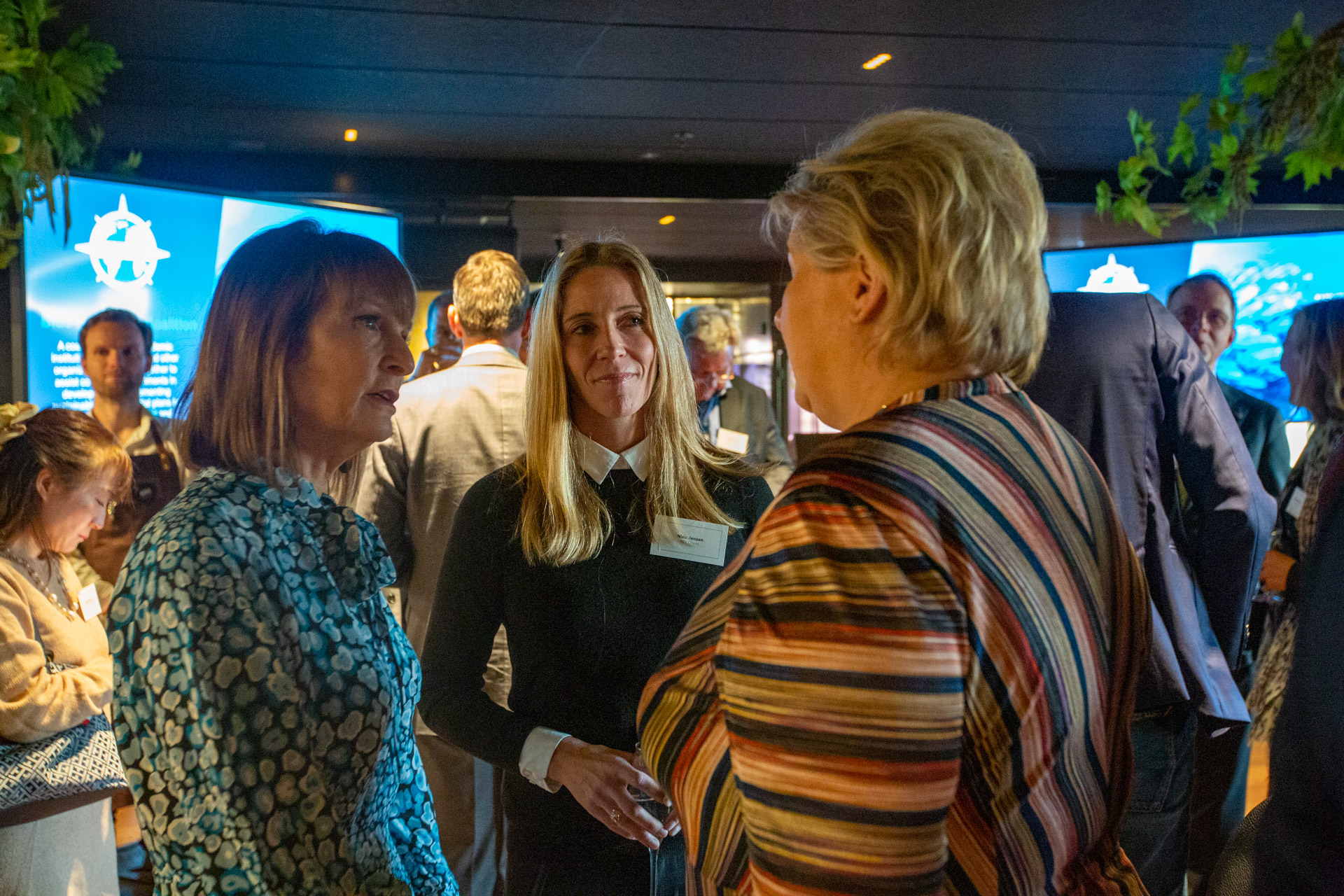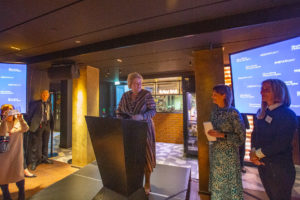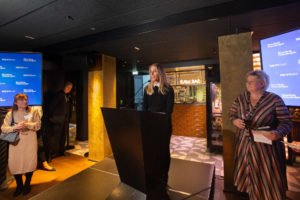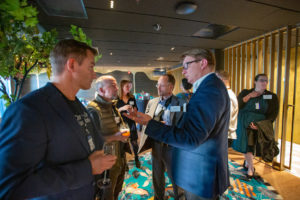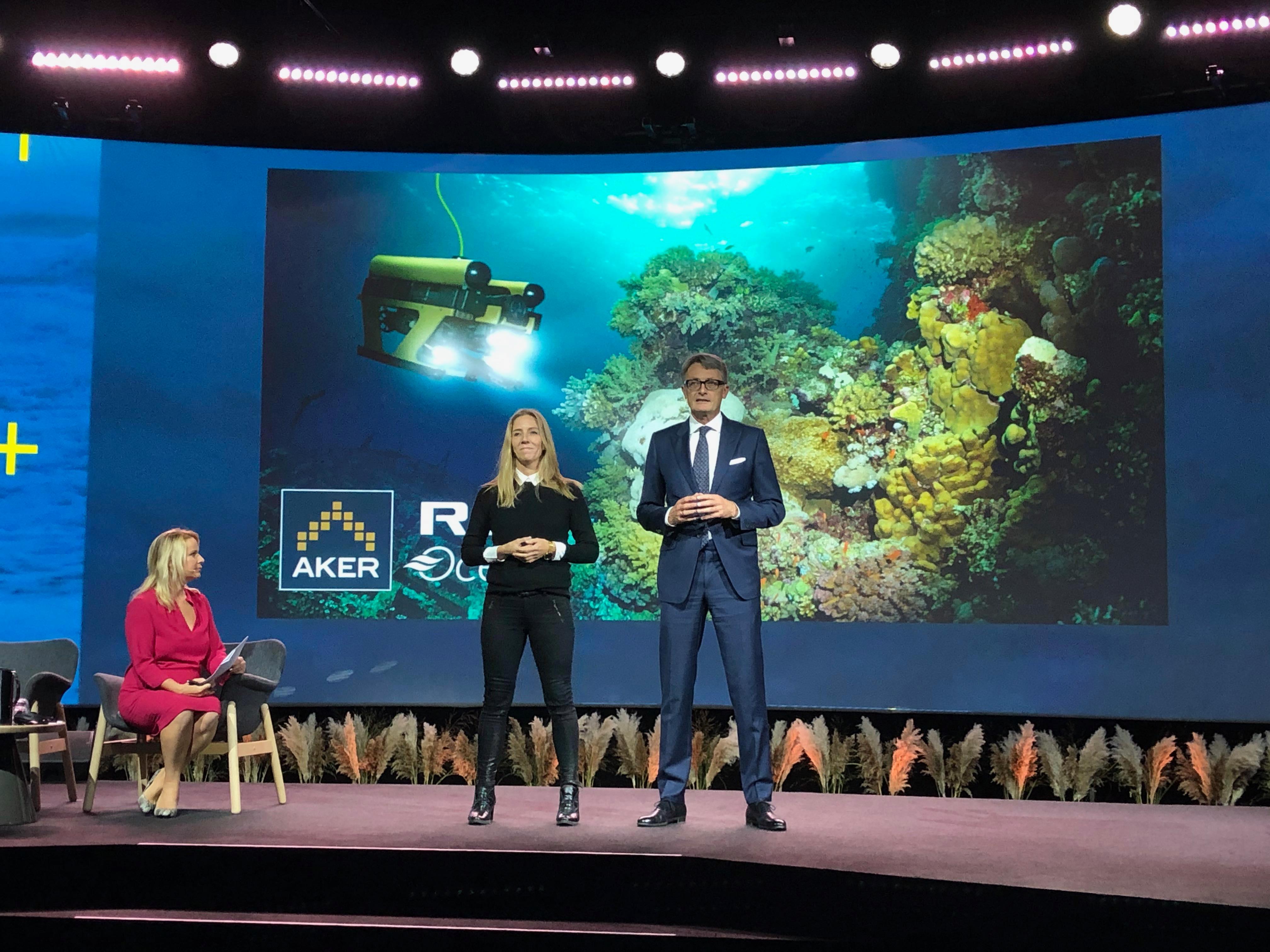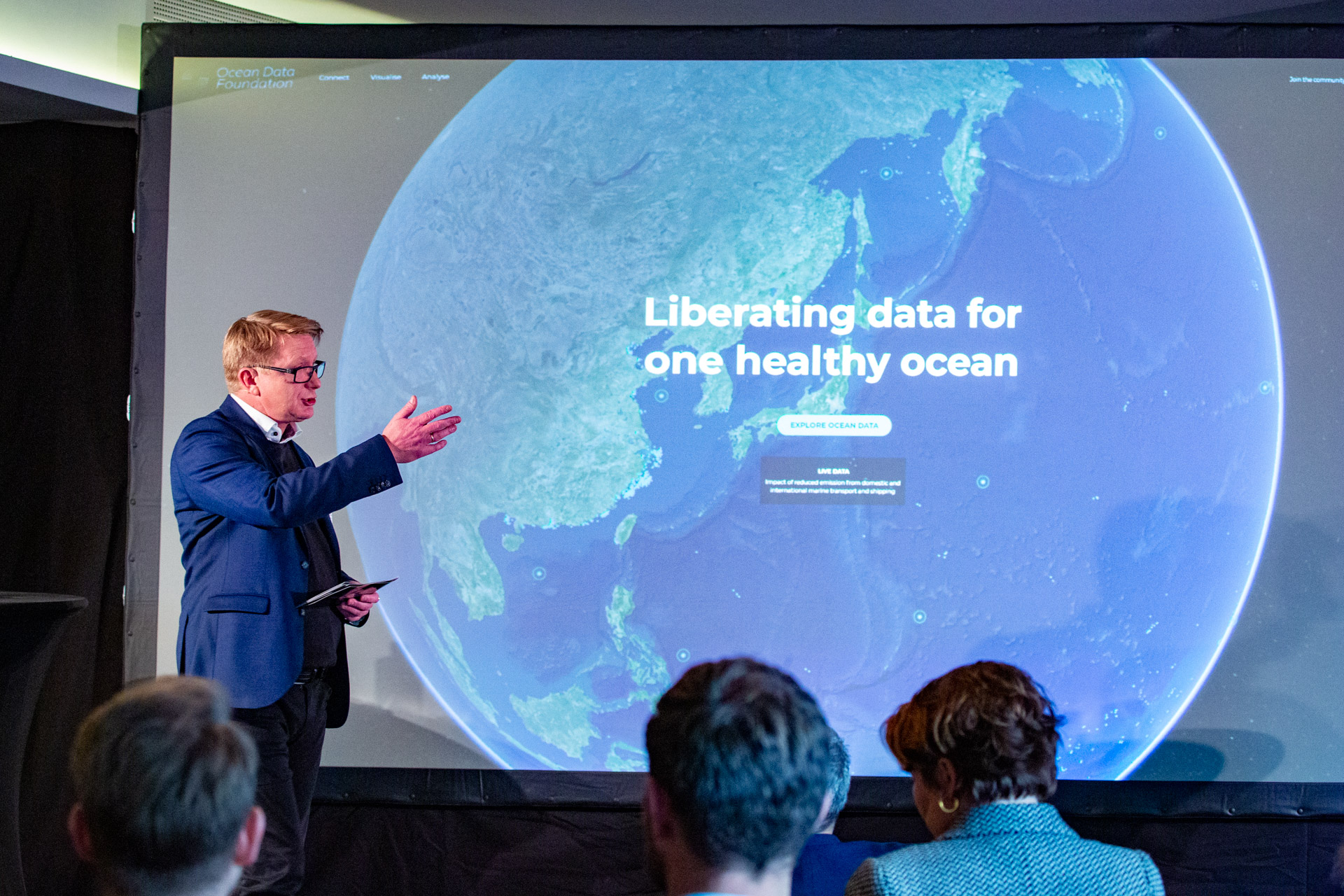Signing with Bjørn Tore Markussen (from left), Nina Jensen, Anne Husebekk and the leader of the Polar research committee at UiT, Jørgen Berge.
Photo: Jonatan Ottesen/UiT
Tromsø, 27 January 2019 – REV Ocean, UiT The Arctic University of Norway and The Ocean Data Foundation today signed a partnership agreement to conduct joint ocean research, education, and innovation. The agreement will also involve cooperation on a new Masters programme in Ocean Leadership.
Nina Jensen, CEO of REV Ocean said: We are delighted to be signing this important agreement with key partners who will help achieve our vision of One Healthy Ocean. Linking the best scientists and innovators from the UiT to our state-of-the-art research vessel, data platform, and global network of researchers will hopefully lead to a new generation of ocean leaders and solutions.
Through this agreement researchers at UiT The Arctic University of Norway will participate in coordinated research trips on-board “REV Ocean” and generate valuable data about ecosystems in the Arctic and other ocean areas. The agreement also includes cooperation with The Ocean Data Foundation, which among other things uses machine learning algorithms, and gives researchers new and unique opportunities to examine biological processes and find new opportunities for the use of data.
“This agreement will give exciting cooperation opportunities in ocean related projects and will strengthen the three institutions. We look forward to cooperating on-board the new research vessel that is currently under construction and expect the Ocean Data Foundation to facilitate deep dives into the open and global data registers for analysis and new knowledge”, said Anne Husebekk, rector at UiT the Arctic University of Norway.
This cooperation will be a significant contribution to REV Oceans core research areas including climate change, plastic pollution and unsustainable fishing practices. The new Master’s programme in Ocean Leadership will also involve understanding and improved decision-making based on comprehensive knowledge, integration and visualisation of data.
Kathrine Tveiterås, Dean of the Faculty of Biosciences, Fisheries and Economics, said: We have an open data policy at here at UiT. Working with large data is becoming increasingly more central, in both science and business. It is therefore important to educate people that have the expertise to understand where the data comes from and what it means.
We look forward to cooperating on ocean research at UiT and make data better and more available, so that we can find sustainable ocean solutions for research and industry, said Bjørn Tore Markussen, CEO for Ocean Data Foundation.
More about REV Ocean here:
https://www.revocean.org/
Media contacts:
Lawrence Hislop
Communication Manager
REV Ocean
lawrence.hislop@revocean.org
+47 48500514
Karine Nigar Aarskog
Seniorrådgiver
UiT Norges arktiske universitet
karine.n.aarskog@uit.no
+47 95158407

